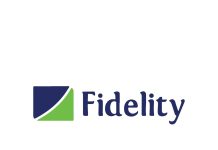🌿 Ruzu Non-Alcoholic Herbal Bitters
Ruzu Non-Alcoholic Herbal Bitters is a natural health supplement specially formulated to:
- ✅ Promote general wellness
- ✅ Detoxify the body
- ✅ Support the treatment of various ailments
Made from a powerful blend of 100% organic and medicinal herbs, Ruzu is completely alcohol-free, making it ideal for:
- 👪 All age groups
- 🌱 Health-conscious individuals
- 🌿 Anyone seeking non-alcoholic herbal remedies
Whether you're looking to boost your vitality, cleanse your system, or support healing the natural way, Ruzu Bitters offers a trusted herbal solution.
The tax system in Nigeria has long represented all the negative aspects of the nation’s overall fiscal culture, including limited tax bases, overworked employees, undertaxed elites, a flourishing black market, and widespread corruption.
Nigeria continues to be one of Africa’s worst tax performers, with a tax-to-GDP ratio that has routinely ranged between 6% and 8%.
As a result, the nation has been pushed into the grip of unstable oil markets, debt, and reliance on help.
The Nigeria Tax Act, Nigeria Tax Administration Act, Nigeria Revenue Service (Establishment) Act, and the Joint Revenue Board (Establishment) Act are four crucial pieces of legislation that were signed into law in 2025. This marks a turning point in this regard.
The goal of these legislation is to completely rethink Nigeria’s taxation philosophy; they are not just administrative documents. Can they succeed where previous reforms failed, though?
The intentional shift toward progressivity in the new tax structure is among its most admirable aspects.
Section 58 of the Nigeria Tax Act, 2025, provides for the first time in Nigerian history that individuals who make ₦800,000 or less a year are lawfully exempt from personal income tax.
This is a brave and kind act in a nation where millions of people live on less than $1 a day.
According to Section 56, small and medium-sized businesses (SMEs) that generate less than N25 million are exempt from company income tax, while those with a turnover of less than ₦100 million enjoy simplified compliance. If carefully put into practice, these policies could help the disadvantaged and encourage the formalization of businesses.
Digitization is not a pipe dream anymore. Currently, it is a statutory requirement.
The integration of Tax Identification Numbers (TINs) with national identity systems like NIN and BVN strengthens the requirement that all government agencies, businesses, and individuals utilize TINs (Tax Administration Act, Sections 4/8).
Fiscalization systems (Section 23) will link taxpayer data, allow electronic return filing, and track VAT in real time. These days, e-invoicing, API-based validation, and artificial intelligence are not just futuristic terms; they are required by law.
These provisions have the potential to bring about a period of traceability, efficiency, and fraud reduction if faithfully applied.
Harmonization is a similarly significant step.
The JRBE Act’s Sections 3 and 5 give the Joint Revenue Board the authority to harmonize the operational frameworks of local, state, and federal tax authorities. According to Section 5 of the Nigeria Revenue Service Act, states can now lawfully designate the NRS to collect specific taxes on their behalf, which could put a stop to the multiple taxation issue that has long stifled businesses. In order to restore trust, the Office of the Tax Ombud (Tax Admin Act, Section 141) was established to give taxpayers a forum for grievance redress and rights protection.
Importantly, the laws introduce fresh perspectives on wealth taxation. Sections 33–49 of the Nigeria Tax Act now include the long-ignored Capital Gains Tax (CGT) on the sale of shares, land, digital assets, and intellectual property. There are exemptions for charitable contributions, reinvestments, and minor earnings (less than ₦10 million). Likewise, the Withholding Tax (WHT) has been reinforced and defined.
The Tax Administration Act, Section 51, has made payments for consulting, rent, royalties, dividends, and digital services liable to source taxes. Noncompliance carries severe penalties, such as a 10% penalty and joint liability clauses.
Additionally, the amendments address long-standing worries about multinational firms evading taxes. Sections 190–195 of the Nigeria Tax Act authorize audits of offshore arrangements, enforce arm’s-length pricing for related-party transactions, and reinforce transfer pricing regulations. These are essential strategies for preventing profit shifting and base erosion.
There are flaws in even the most hopeful initiatives, though. There is no simplified taxpayer handbook or comprehensive rate schedule, despite the fact that exemption thresholds are explicitly specified. Navigating this new landscape may feel like negotiating a legal maze for small enterprises and unofficial dealers. What’s more concerning is that the laws are not gender-responsive. The special difficulties that women-led enterprises, especially those in the unorganized sector, encounter are still ignored by Nigeria’s tax system. To support them, there are no specific tax credits, waivers, or allowances for capacity-building.
Exemptions are insufficient on their own to make pro-poor taxation relevant. Linking tax IDs to the National Social Register, conditional cash transfers, and health insurance programs are all examples of how Nigeria must incorporate tax changes into its social protection framework. Social equity must be accompanied with tax justice.
Treatment of tax refunds is also a cause for worry. Though it does not include any required deadlines or automated triggers, Section 55 of the Tax Administration Act offers a refund method. This ambiguity might harm legitimate enterprises, especially exporters and large buyers with input tax credits, and discourage voluntary compliance in a system known for its bureaucratic lethargy.
A further obvious shortcoming is the absence of a system for reporting tax expenditures under statute. Section 27 of the law requires individual enterprises to file tax incentive filings; however, Nigeria does not yet have a complete framework for government-wide reporting on tax expenditures that discloses, aggregates, and assesses the entire cost of tax incentives across sectors on an annual basis. Nigeria still does not have a national annual tax expenditure statement, which is available in Canada, South Africa, and Kenya. The entire amount of money lost due to waivers and exclusions is also not required to be made public, and there is no procedure in place for weighing the costs and benefits of tax breaks. This prevents citizens and officials from understanding the trade-offs that are a part of Nigeria’s budgetary system. These days, several nations release yearly reports that detail the financial burden of exemptions and waivers. Since Nigeria forgoes a large amount of income through corporate incentives, this is extremely important for accountability and transparency.
Implementation continues to be the unspoken issue. Even the most basic infrastructure is lacking in many LGAs, including computerized systems, qualified staff, and connectivity, despite the legal aspirations. The disparity between digitally illiterate areas and high-performing states like Lagos may make inequality worse.
Read Also: Tinubu Tasks Governors with Grassroots Resource Distribution
Further undermining the Joint Revenue Board’s harmonisation objective are federal-state conflicts over revenue collection, particularly in politically charged settings.
If revenue officials are not given institutional autonomy, there is also a chance that tax enforcement will turn into a political issue. The State IRS and NRS leadership appointment process is not immune to political meddling. Reform must be sustained by strong institutions, not just powerful legislation.
However, there is a chance that the reforms will be revolutionary.
With the legal foundation for taxing digital transactions, virtual assets, and non-resident service providers, Nigeria can now keep up with global trends. The basis for climate funding and green taxation is established by environmental levies and the 5% fossil fuel surcharge (Tax Act, Section 159). Tax Administration Act, Section 27’s requirement that businesses file tax incentive returns may reveal misuse and increase openness.
The efficacy of incentives is still unknown, though. The government is under no duty to make the cost-benefit analysis of these waivers publicly available, even though businesses are now required to file tax incentive filings. In the absence of impact assessment, incentives might continue to be opaque instruments for rent-seeking instead of growth-promoting agents.
Rwanda, South Africa, Kenya, and Ghana are just a few of the nations that have achieved impressive progress in smart taxation. However, efficient taxes must influence planning, budgeting, and delivery in addition to collecting. Therefore, tax revenue must be directly linked to the national and subnational budget cycles as part of any improvements to public financial management. It should be transparent to the public how taxes support public infrastructure, such as roads, hospitals, and schools.
Tax-tagged project monitoring, community scorecards, and budget transparency portals can all aid in restoring the public’s and governments’ lack of trust. Nigeria ought to put in place participatory budgeting procedures that give local communities a role in how local tax money is used.
Nigeria must advance rather than just catch up. We can lead tax innovation by incorporating blockchain, artificial intelligence, and geospatial analytics into compliance systems if we have the correct leadership.
The changes also bring up significant issues with fiscal federalism. Beyond structural harmonization, Nigeria’s unsettled fiscal arrangements represent the true problem.
More than administrative alignment, constitutional clarity is needed to resolve the conflict between state-level autonomy and centralized tax administration, particularly with regard to VAT and mineral revenue. The Joint Revenue Board would have trouble gaining support from all of Nigeria’s federating units if these fundamental conflicts are not resolved.
The 2025 laws also put Nigeria in a better position to comply with the Base Erosion and Profit Shifting (BEPS) action plans of the OECD. Nigeria must actively participate in multilateral fora as global minimum tax regulations and digital taxes develop to guarantee that African interests are taken into account when creating more equitable international tax laws.
Simplified presumptive tax systems, mobile-based registration, and incentives for digital bookkeeping are some of the targeted tools that must be used in conjunction with reforms to unlock Nigeria’s sizable informal and youth-led economy. A youth tax transition program that offers tax breaks in return for digital onboarding has the potential to revolutionize the industry.
A backlogged and understaffed judiciary nevertheless makes it difficult to promptly resolve tax issues, even if the Tax Appeal Tribunal and Ombudsman provide organized remedy. Therefore, judicial capacity-building, particularly at the state level, must go hand in hand with tax reforms in order to produce outcomes that are fair, uniform, and swift.
Despite its seeming efficiency, the NRS’s consolidation of taxation authorities runs the risk of recentralizing fiscal authority in a way that weakens state authority. It is crucial to strike a careful balance between local innovation and national uniformity, particularly in states with distinct economic profiles or reform momentum.
Untapped potential as a compliance partner is presented by Nigeria’s flourishing fintech ecosystem. In order to manage VAT in retail, enroll informal traders, and streamline tax reporting for gig workers, the government can collaborate with startups to develop low-code solutions and APIs.
It is praiseworthy that Nigeria implemented a fossil fuel tariff. Making the most of tax reforms as an anti-corruption tool is equally important. Combining financial data and taxpayer identification with AI-enabled audit tools opens up new avenues for identifying off-budget spending, illegal enrichment, and procurement fraud. Public officeholders should be subject to financial openness as well, with yearly asset statements in line with tax records. Nigeria can tackle corruption at its core by tying taxes to the integrity of governance. However, actual green taxation would necessitate a more comprehensive set of policies, including carbon pricing, environmental taxes on extractive companies, and incentives for climate-smart farming. A national green fund financed by eco-taxes might hasten the low-carbon transition and climate resilience.
Beyond legislative reform, citizens want useful instruments. Individuals with disabilities (PWDs), the elderly, and other disadvantaged groups are among the categories most impacted by taxes in Nigeria. However, these groups do not receive any special tax breaks, exemptions, or incentives under the current legislation.
Tax justice needs to take marginalization, age, and aptitude into consideration. For example, providing VAT exemptions for assistive devices and services related to disabilities, or PIT exemptions to seniors with low pensions, can help the tax code be more socially equitable. The government must to take into account tax aid initiatives for PWDs and the elderly, including community tax consultants or mobile filing assistance. The complexity of compliance will be reduced through community-based tax education, streamlined rate tables, and a national tax calculator app. When changes lack clarity, they run the risk of alienating the same people they are meant to help.
Along with additional regulations, the 2025 tax reform laws also provide new opportunities. A chance for taxes to become a tool for growth and justice. A chance to disentangle Nigeria from its reliance on oil. the chance to restore the taxpayer’s dignity. The devotion of citizens, the integrity of institutions, and the bravery of leaders will determine whether these laws live up to their promises. The laws originated in Nigeria. The legacy now needs to be written.
A development economist and specialist in fiscal governance, Prof. Chiwuike Uba* has authored numerous policy papers on public finance and tax reform. He is the leader of the ACUF Initiative for Policy and Governance’s board.
















